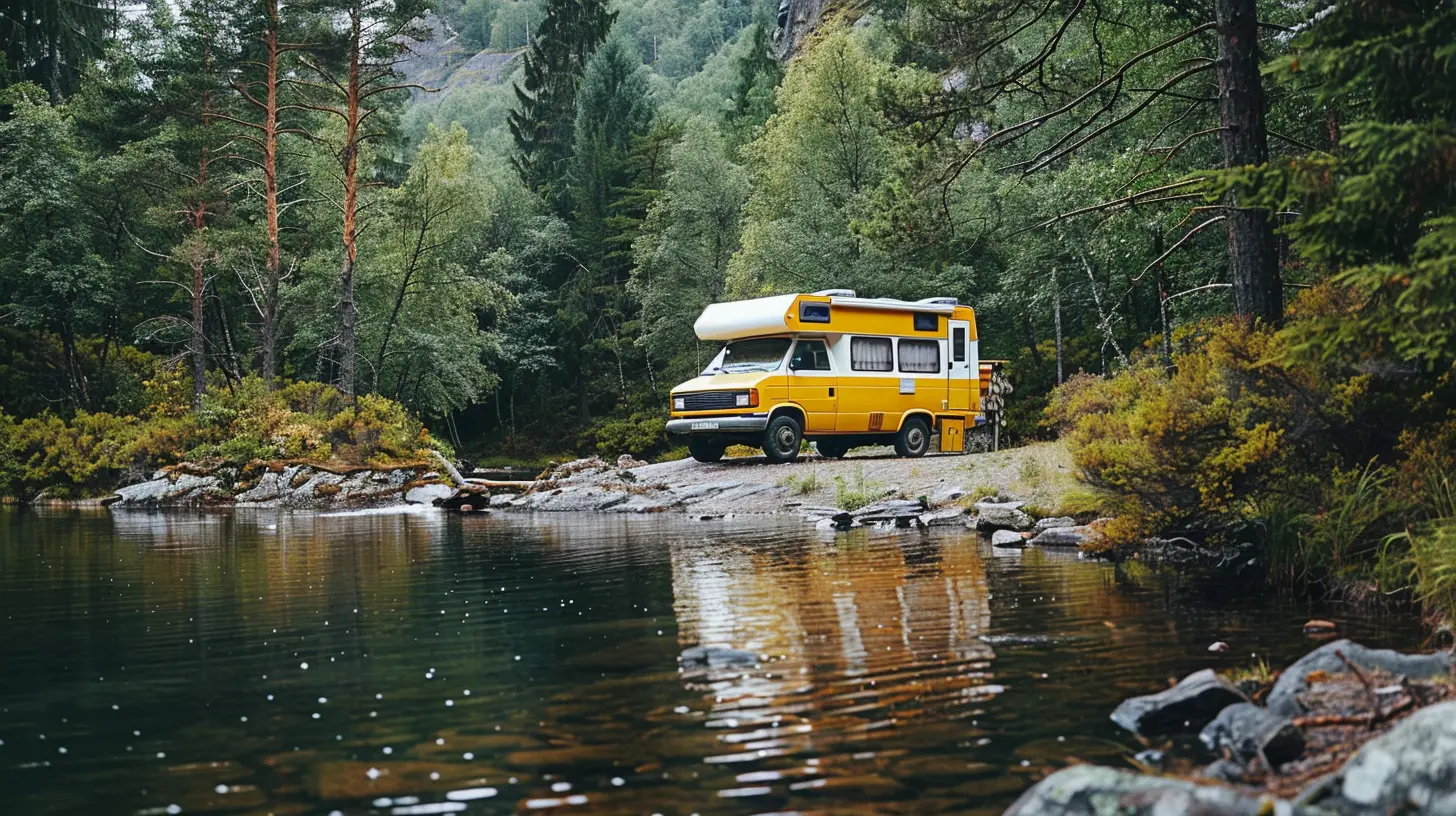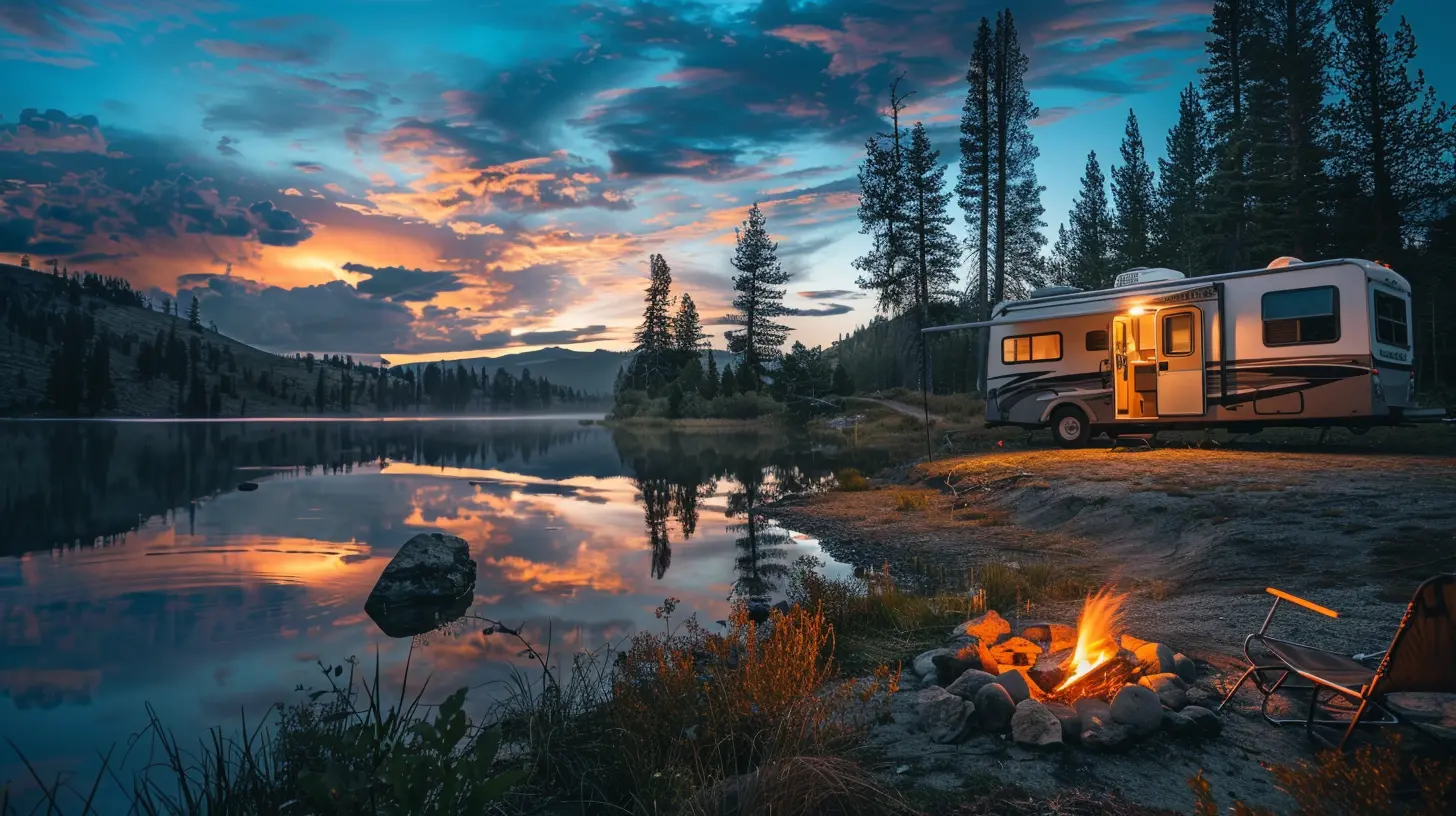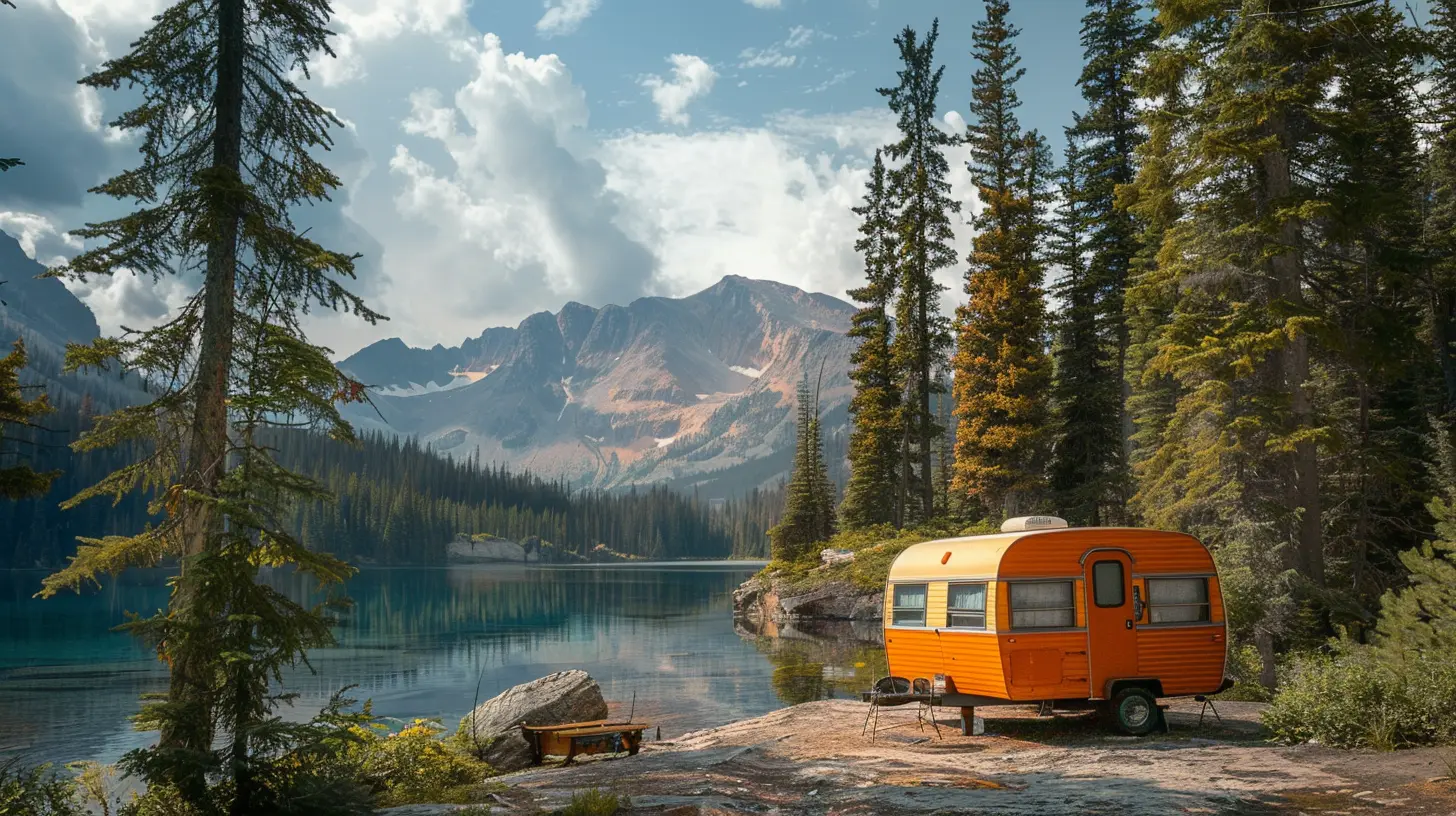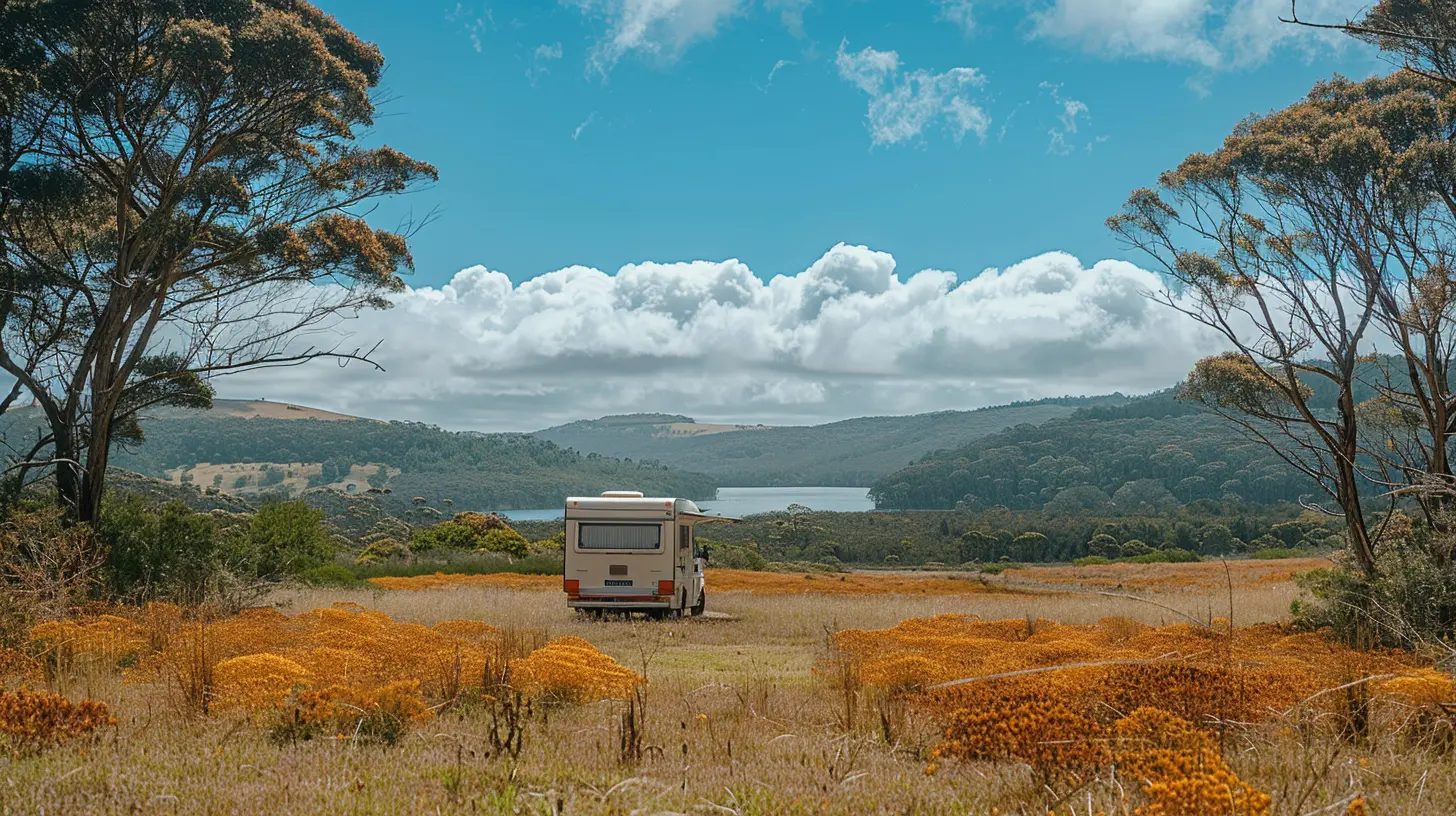Tent or RV? How to Decide Which Camping Style Suits You
5 July 2025
Camping is one of the best ways to escape the hustle and bustle of daily life and reconnect with nature. But here comes the big question—tent or RV? Deciding how you want to camp can be tricky, especially if you're new to the experience.
Both tent camping and RV camping offer their own unique advantages, and the right choice depends on your preferences, budget, and sense of adventure. Should you rough it out under the stars with just a tent and a sleeping bag? Or do you prefer the comfort and convenience of an RV?
If you're stuck between the two, don’t worry! Let’s break down the pros and cons of each style to help you make the best decision for your next outdoor adventure. 
The Appeal of Tent Camping
Tent camping is the classic way to experience the great outdoors. It’s just you, your gear, and the raw beauty of nature.Pros of Tent Camping
1. Affordable and Budget-Friendly
If you're looking for a low-cost getaway, tent camping is the way to go. Tents are relatively inexpensive, and most campsites charge lower fees for tent spots compared to RV hookups. Plus, you won’t need to worry about fuel costs or vehicle maintenance.2. Easy to Set Up (Once You Get the Hang of It)
Modern tents are designed to be easy to assemble, with many models allowing for quick, hassle-free setup. Once you get used to it, pitching a tent can be a fun part of the experience!3. Closer to Nature
Sleeping in a tent means you’ll wake up to fresh air, the sound of birds chirping, and the wind rustling through the trees. Without the barriers of an RV, you’ll feel completely immersed in your surroundings.4. More Campsite Options
Tents can be set up almost anywhere—on mountaintops, deep in forests, or even on the beach. Unlike RVs, which require designated campsites with hookups, tent campers can venture into more remote and scenic locations.Cons of Tent Camping
1. Exposure to the Elements
Tent camping is all fun and games—until it rains. Bad weather can quickly turn your trip into a soggy, uncomfortable experience. Extreme temperatures can also be challenging without proper gear.2. Less Comfortable Sleeping Arrangements
If you’re someone who can’t sleep without a proper bed, tent camping might test your patience. Sleeping bags and air mattresses can help, but they won’t provide the same comfort as a mattress in an RV.3. Limited Storage Space
Everything you bring must fit in your backpack or car, which means packing light is essential. If you enjoy having all your gear, supplies, and food easily accessible, tent camping might feel restrictive.
The Perks of RV Camping
RV camping provides the best of both worlds—nature and comfort. You get to enjoy the great outdoors without sacrificing modern conveniences.Pros of RV Camping
1. Comfortable Sleeping and Living Arrangements
One of the biggest perks of an RV is having a real bed, kitchen, and even a bathroom. You don’t have to worry about sleeping on the cold, hard ground or making frequent trips to a public restroom.2. Protection from Weather
Rain, wind, or freezing temperatures? No problem! Inside an RV, you’ll stay warm, dry, and comfortable no matter what Mother Nature throws at you.3. More Packing Space
Unlike tent camping, where you need to pack light, RVs give you the luxury of bringing everything you need—extra clothes, cooking supplies, food, and even entertainment options like board games or a TV.4. Road-Tripping Convenience
With an RV, your campsite is wherever you decide to park it. Long road trips become a breeze because you don’t have to book hotels along the way. Just pull into a campsite, settle in, and enjoy the journey.Cons of RV Camping
1. Expensive Upfront and Long-Term Costs
RVs aren’t cheap. Whether you buy or rent, they come with hefty price tags. Add in the cost of fuel, maintenance, and campsite fees, and your camping trip can get pricey fast.2. Requires a Learning Curve
Driving an RV isn’t like driving a car. Depending on its size, maneuvering, parking, and setting up camp can take some practice. If you’re not comfortable with large vehicles, this could be a challenge.3. Less Immersion in Nature
While RVs are great for comfort, they can also create a disconnect between you and nature. Compared to sleeping in a tent under the stars, staying inside an RV can feel a bit like bringing your home on the road rather than fully embracing the outdoors.
Key Factors to Consider When Choosing
Still unsure which option suits you best? Ask yourself these questions:1. What’s Your Comfort Level?
If you love the idea of sleeping under the stars and roughing it a bit, tent camping is for you. If you prefer a cozy bed, temperature control, and a bathroom, RV camping will be more comfortable.2. What’s Your Budget?
Tents are budget-friendly and require minimal investment. RVs, on the other hand, require a bigger budget for purchase, maintenance, and fuel. Be honest about what you’re willing to spend.3. How Often Will You Go Camping?
If camping is an occasional getaway, a tent might be all you need. But if you dream of long road trips or frequent camping adventures, investing in an RV could be worthwhile.4. How Much Gear and Storage Do You Need?
Are you okay with packing light, or do you want to bring half your home with you? If you need lots of space for food, supplies, and extra gear, an RV is the better option.5. How Comfortable Are You With Driving a Large Vehicle?
If driving a big rig stresses you out, a tent is the easier choice. But if you’re up for the challenge and love road trips, RV camping can be an exciting adventure.
The Best of Both Worlds: Hybrid Camping
Who says you have to choose just one? Some campers combine both styles based on their trips!- Weekend Getaways? Tent camping can be a simple, affordable option.
- Longer Road Trips? RVs provide the convenience and comfort you’ll appreciate on extended adventures.
- Family or Group Camping? An RV can serve as a central hub for storage and shelter, while some members sleep in tents to enjoy a mix of both experiences.
Making Your Final Decision
Ultimately, the best camping style is the one that fits your needs, preferences, and travel goals. If you crave adventure, enjoy roughing it, and love the challenge of packing light, go with a tent. If you value comfort, convenience, and the freedom of road-tripping, an RV is the way to go.No matter which route you choose, one thing is certain—camping is an incredible experience that allows you to step away from the daily grind and embrace the beauty of nature. Whether you’re sleeping in a tent or rolling through scenic landscapes in an RV, you’re bound to create unforgettable memories.
So, what’s it going to be—tent or RV? Whichever you decide, pack your bags, hit the road, and enjoy the adventure of a lifetime!
all images in this post were generated using AI tools
Category:
Camping TravelAuthor:

Tracie McAdams
Discussion
rate this article
2 comments
Pierce Cross
Choosing between tent and RV camping hinges on personal preferences, budget, and desired experience. While tents offer closeness to nature, RVs provide comfort and convenience. Assessing these factors is essential for a rewarding adventure.
September 29, 2025 at 4:38 PM

Tracie McAdams
Great summary! Personal preferences and priorities play a crucial role in deciding between tent and RV camping.
Easton McCray
Embrace adventure—choose the camping style that inspires!
July 11, 2025 at 4:19 PM

Tracie McAdams
Absolutely! Choosing the right camping style depends on your adventure preferences and comfort needs—embrace what inspires you!


